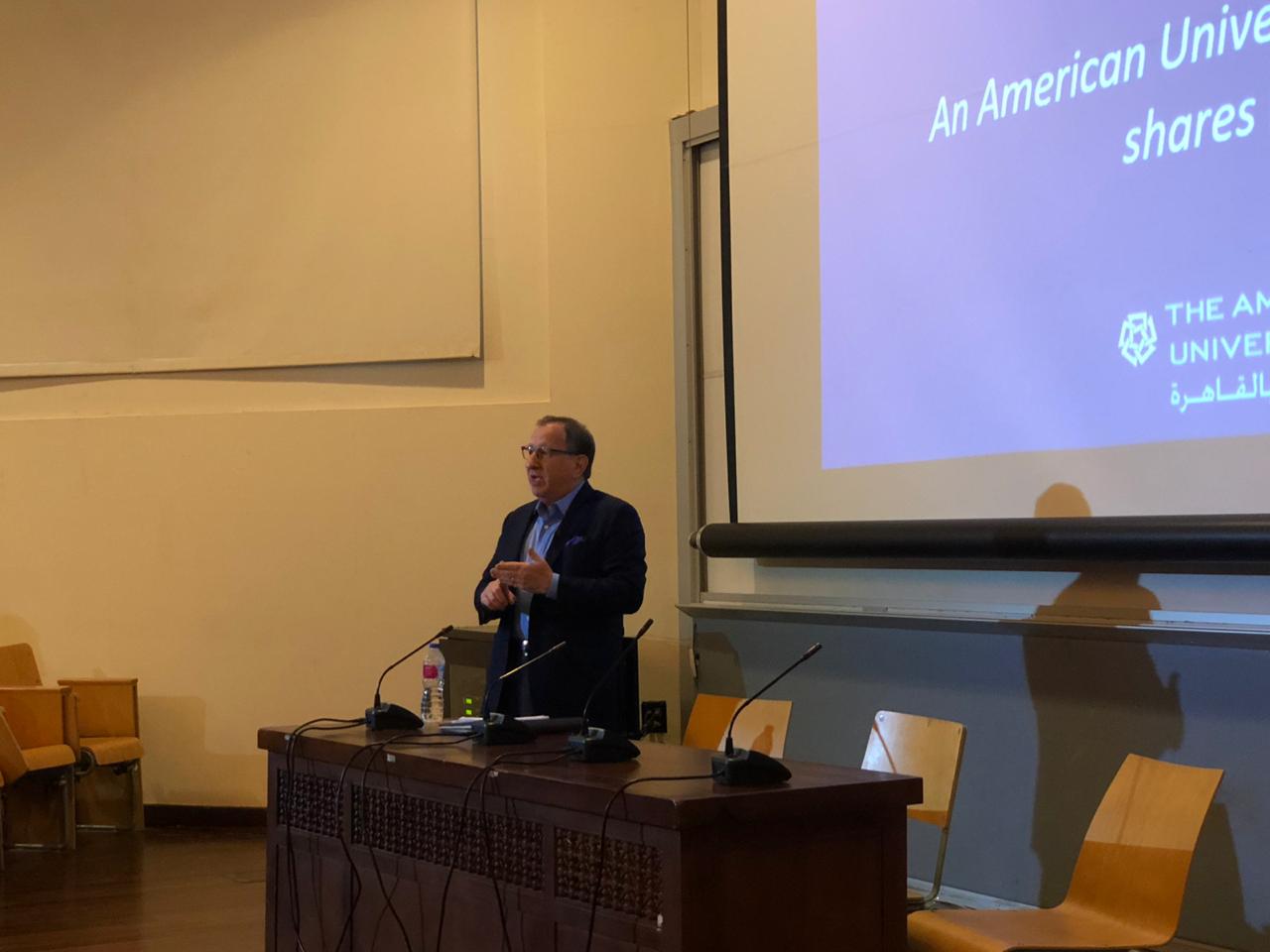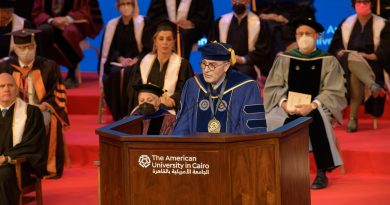Global Recession Likely, Business Expert Says
By: Sherif El Hakim
@sherifelhakim2
With the current economic climate, business owners and investors around the world feel that an inevitable global recession is imminent due to economic growth slowing, investment expert Jonathan Wolf told a packed audience during a guest lecture at AUC on February 10.
During his lecture “US Economic Trends, Entrepreneurialism: Passion vs. Risk” at Mary Cross Hall, Wolf explained that the current business climate is fueling economic uncertainty.
Wolf is the founder and president of Wendover Housing Partners, a leading real estate development, investment and management company in the US. Wolf graduated from Georgetown University’s School of Foreign Service, after attending AUC in a year abroad program in 1974.
He explained that despite unemployment being at a record low of 3.9 percent in the United States, the nation is still headed for a global recession.
Political and economic unrest like the emergence of Brexit, US President Donald Trump’s trade war with China and the US government’s shutdown are all examples of the forces that drive the economy towards economic uncertainty, Wolf explained.
“The world is living in a period of uncertainty. [Unfortunately], for businesses we like to plan ahead, and this is impossible to do with so much current uncertainty,” he said.
Wolf believes that businesses are hesitant and unwilling to reinvest their capital, without having assurances on upcoming political decisions that could hinder their balance sheets.
The International Monetary Fund (IMF) have warned and advised governments that economic recession is imminent due to growth falling short of expectations.
A survey conducted, on January 28 to February 4 by CNBC revealed that 2,200 small-business owners across the US are fearful of an upcoming recession and are therefore worried about investing in capital at this stage, due to low or no returns.
Aside from issues faced by business owners, Wolf said that Trump’s tax reforms have been an unexpected gift to the upper class, a gift that, according to Wolf, has ultimately boosted the US economy.
However, Wolf believes it is unfair that he is paying less taxes than his employees because of Trump’s tax policies.
“The tax reform was a gift for individuals such as myself that I felt was unnecessary. The middle class are bearing the brunt of taxes. They did not get a tax break,” he said.
Economics Professor Adel Beshai attended the lecture and told The Caravan that countries can and should be better equipped for another global recession, especially after experiencing the consequences of the 2008 global financial crisis, when thousands lost their jobs.
Although its impact differed across countries, the resulting recession of 2008 was a major economic decline in all world markets.
“It took America one year to undergo fiscal stimulus, which is a Keynesian method that Americans don’t like, but it worked. You know the European central bank behaved in a way that even my students knew was wrong. Hopefully this time everyone will be ready,” Beshai said.
Fiscal stimulus is an increase in public spending or a reduction in the level of taxation by the government in order to encourage and support economic growth. In the great recession of 2008, the European central bank raised the interest rates.
Despite the economic climate that is predicted, Wolf encouraged students to learn more about business start-ups and take financial risks, as this is the age of start-ups.
“This is the most wonderful time in history for starting a company. We are in the same period as Bill Gates and Steve Jobs, as there were elements to assist them just like there are elements to assist us, due to the advancement of technology and embracing of technology. This generation is very lucky,” he said.
The event was organized in collaboration with the School of Business and School of Global Affairs and Public Policy, as well as being moderated by Ahmed Tolba, director of El-Khazindar Business Research and Case Center.




